Filter by
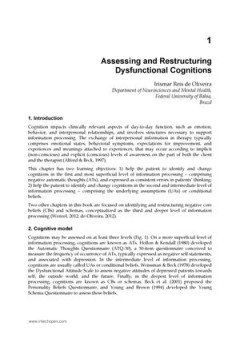
Assessing and Restructuring Dysfunctional Cognitions
Assessing and Restructuring Dysfunctional Cognitions
- Edition
- -
- ISBN/ISSN
- 9789535103127
- Collation
- -
- Series Title
- -
- Call Number
- -
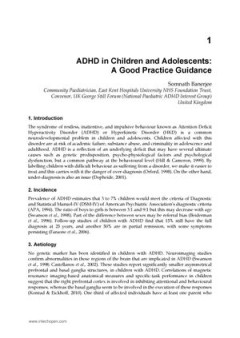
Adhd in Children and Adolescents a Good Practice Guidance
ADHD in Children and Adolescents: A Good Practice Guidance
- Edition
- -
- ISBN/ISSN
- 9789533078687
- Collation
- -
- Series Title
- -
- Call Number
- -
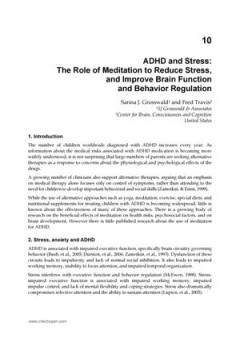
Adhd and Stress The Role of Meditation To Reduce Stress, and Improve Brain F…
ADHD and Stress: The Role of Meditation to Reduce Stress, and Improve Brain Function and Behavior Regulation
- Edition
- -
- ISBN/ISSN
- 9789533078687
- Collation
- -
- Series Title
- -
- Call Number
- -
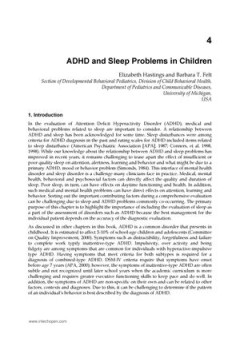
ADHD and Sleep Problems in Children
ADHD and Sleep Problems in Children
- Edition
- -
- ISBN/ISSN
- 9789533078687
- Collation
- -
- Series Title
- -
- Call Number
- -
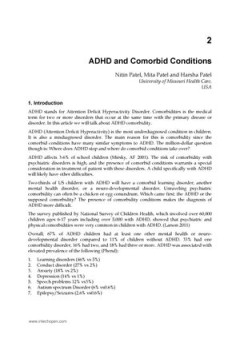
ADHD and Comorbid Conditions
ADHD and Comorbid Conditions
- Edition
- -
- ISBN/ISSN
- 9789533078687
- Collation
- -
- Series Title
- -
- Call Number
- -

Psychology of Language
In this textbook, students are introduced to the fundamental principles of linguistics and psycholinguistics. Students will explore theories and models of language development, comprehension and production as well as bilingualism and reading. All of these topics are approached from a Canadian perspective and include ideas from indigenous cultures and languages of Canada.
- Edition
- -
- ISBN/ISSN
- 9781774201329
- Collation
- -
- Series Title
- -
- Call Number
- -
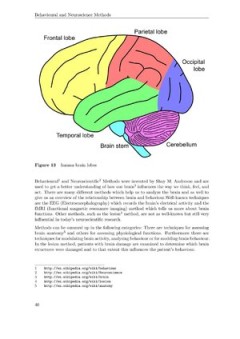
Cognitive Psychology & Cognitive Neuroscience
Imagine the following situation: A young man, let’s call him Knut, is sitting at his deskreading some papers which he needs to complete a psychology assignment. In his right handhe holds a cup of coffee. With his left one he reaches for a bag of sweets without removingthe focus of his eyes from the paper. Suddenly he stares up to the ceiling of his room andasks himself: “What is happening h…
- Edition
- -
- ISBN/ISSN
- -
- Collation
- -
- Series Title
- -
- Call Number
- -
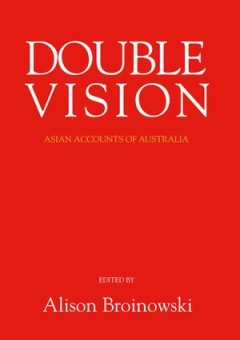
Double Vision Asian Accounts of Australia
Do Australians care about what their Asian neighbours think of them — and does it matter if they don’t? This collection of essays reveals that admiration for Australia is not widespread, particularly among Japanese and Chinese commentators. And how our Asian neighbours perceive Australia is important: perceptions have a powerful effect on the way different societies respond to one another. …
- Edition
- -
- ISBN/ISSN
- 9781921862274
- Collation
- -
- Series Title
- -
- Call Number
- -
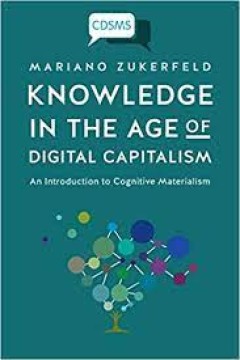
Knowledge in the Age of Digital Capitalism: An Introduction to Cognitive Mate…
Knowledge in the Age of Digital Capitalism proposes a new critical theory concerning the functioning of capitalism and how we consider knowledge and information. This ambitious book systematically and lucidly introduces contemporary phenomena into the framework of cognitive materialism to address some of the great themes of the social sciences: knowledge, exploitation and social class in an acc…
- Edition
- -
- ISBN/ISSN
- -
- Collation
- -
- Series Title
- -
- Call Number
- 320
 Computer Science, Information & General Works
Computer Science, Information & General Works  Philosophy & Psychology
Philosophy & Psychology  Religion
Religion  Social Sciences
Social Sciences  Language
Language  Pure Science
Pure Science  Applied Sciences
Applied Sciences  Art & Recreation
Art & Recreation  Literature
Literature  History & Geography
History & Geography